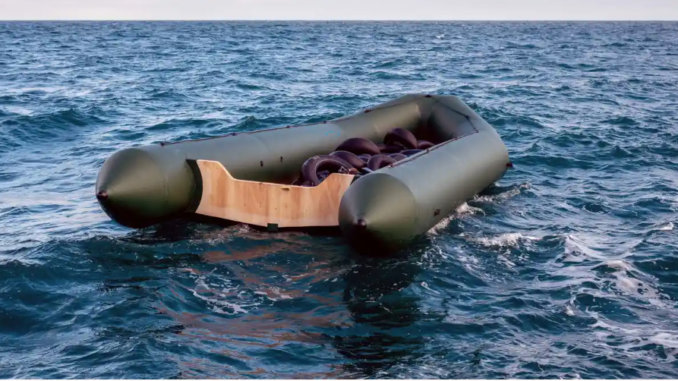
There is no shortage of headline-grabbing soundbites about how the government is going to halt the trade of smugglers who bring desperate people across the Channel in dinghies. Ever since the then home secretary Sajid Javid declared a “major incident” in December 2018, a year in which the cross-Channel smuggling trade took off with a few hundred asylum seekers travelling from northern France to the UK in dinghies, government has made all manner of pledges to end this practice.
Successive and increasingly bold announcements have not only failed to dent this trade but have coincided with a huge increase – a record 45,756 people crossed in 2022.
Reports of wave machines to repel dinghies surfaced at one point, which was followed by a policy to push the boats back. The latter may well have appealed to some in Conservative heartlands, but the policy was withdrawn ahead of a legal review. Critics warned it could lead to Border Force officials involved in pushbacks making dinghies capsize, risking the lives of those on board.
Sending asylum seekers who arrived in the UK in dinghies to Rwanda was the boldest of these policies – something that no other European country has tried. This one is still going through the courts and, while two judges found the policy to be lawful, their judgments raised concerns about the way some of those earmarked for Rwanda had been processed. This suggested that all individuals’ cases would have to be carefully considered before bundling them on to a flight to the east African country – a bit trickier than the initial soundbite announcement of the policy in April 2022 suggested.
This brings us to the latest soundbite, announced in parliament on Tuesday. In a change to the online safety bill, video footage that shows people crossing the Channel in “a positive light” will be added to the list of illegal content that all tech platforms must proactively prevent from reaching users. The culture secretary, Michelle Donelan, said that posting positive videos of crossings could be aiding and abetting immigration offences.
It remains to be seen whether this new measure will have any impact on the levels of business for cross-Channel people smugglers. Those who make a decision to pay thousands of pounds to a smuggler to cross the Channel are not doing the equivalent of selecting a summer holiday where tantalising photos in a glossy, full colour brochure can sway them.
An upbeat photo of a Channel crossing with smiling refugees in lifejackets with a backcloth of a clear blue sky posted by a smuggler on social media will not be a gamechanger for one of the most desperate groups of people in the world. People planning to use smugglers tend to use networks within their communities – personal recommendations – to find one, rather than cold-calling someone who has posted the nicest clips on TikTok.
In a statement, the Home Office said: “Posts promoting illegal routes to the UK are putting vulnerable people’s lives at risk and funding vile criminal gangs … tech firms will have to take proactive steps to stop people smugglers from carrying out their business on social media and remove content that seeks to aid, abet or encourage people to commit an existing immigration offence.”
It also said humanitarian organisations would not be penalised. However, those who oppose the government’s position on Channel crossings, including human rights lawyers and refugee NGOs, remain fearful that they could be implicated if they share footage that may call into question the policing of these crossings. And what if social media companies, fearful of legal action, react by blocking a wide range of Channel-related footage? Could this new rule lead to a suppression of vital evidence of any concerning incident in the Channel?
Evidence-gathering in investigations into small boat tragedies in the Channel is complex and video footage could be vital. The new clause in the bill could make institutions less accountable. It is also extremely unlikely to stop the cross-Channel people smugglers in their tracks.
Diane Taylor is a journalist who writes for the Guardian. She has a particular interest in human rights, racism and civil liberties
END

Be the first to comment